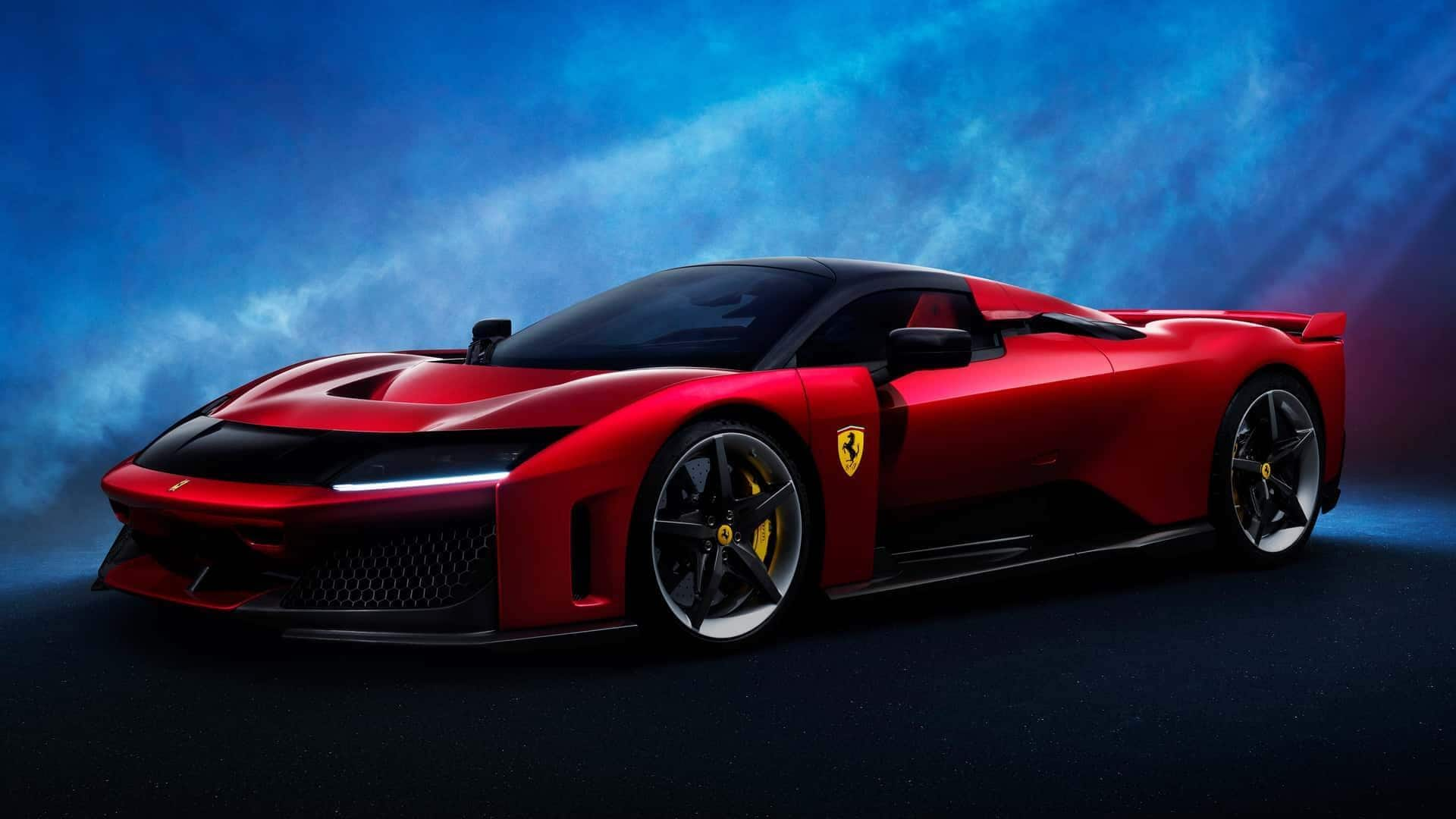
Ferrari F80 debuts as brand's most powerful road car ever
What's the story
Ferrari has officially unveiled the F80, the hypercar that replaces the legendary LaFerrari.
The new model is being described as Ferrari's most powerful road car yet, featuring a 1,200hp hybrid V6 powertrain.
The new engine integrates technologies from Ferrari's Le Mans-winning 499P and its Formula 1 cars.
The launch comes just days after McLaren's W1 reveal. The F80 is priced starting at £3 million (roughly ₹33 crore).
Only 799 units will be made, all of which have already been sold.
Powertrain details
F80's engine and performance
The F80 draws power from a revamped version of Ferrari's 3.0-liter twin-turbo V6 engine, which can rev up to 9,200rpm.
This engine has been heavily modified from the one seen in the 296 GTB, with parts from the 499P Le Mans car, to produce a staggering 900hp.
Despite its power, Ferrari claims this new unit weighs no more than the engine on the 296 GTB model.
Hybrid innovation
F80's hybrid system and performance modes
The F80's hybrid system features three electric motors, two on the front axle and one on the rear.
These motors are Ferrari's first in-house creations, with the front units delivering 142hp each.
The rear motor serves as an 'MGU-K' energy recovery unit, similar to those seen in Ferrari's F1 cars. It can recover up to 95hp through braking to automatically fill power gaps.
The F80 boasts a 0-100km/h acceleration time of 2.15 seconds and a 0-200km/h time of 5.75 seconds.
Aerodynamic design
F80's aerodynamics and downforce capabilities
The F80's underbody is heavily inspired by Ferrari's F1 car, complete with large barge boards to direct air flow.
The front of the car is dominated by a huge 'S-Duct,' inspired by the 499P, that moves air over the cabin toward the rear.
An active rear wing adjusts both its height and angle to optimize downforce and minimize drag. At 250km/h, the F80 can generate up to 1,000kg of downforce.
Chassis specifications
F80's dimensions and weight
The F80 is 4,840mm long, 2,060mm wide, and 1,130mm tall.
Although it is a tad bigger than the W1 and weighs 125kg more at 1,525kg (dry), it is actually 60kg lighter than the LaFerrari.
This is because it employs lightweight materials like carbon fiber, titanium, and aluminium.
Ferrari acknowledges the importance of driver experience and has meticulously crafted the F80's interior to offer a balance between functionality and luxury. Advanced technology seamlessly integrates with a driver-centric cockpit design.